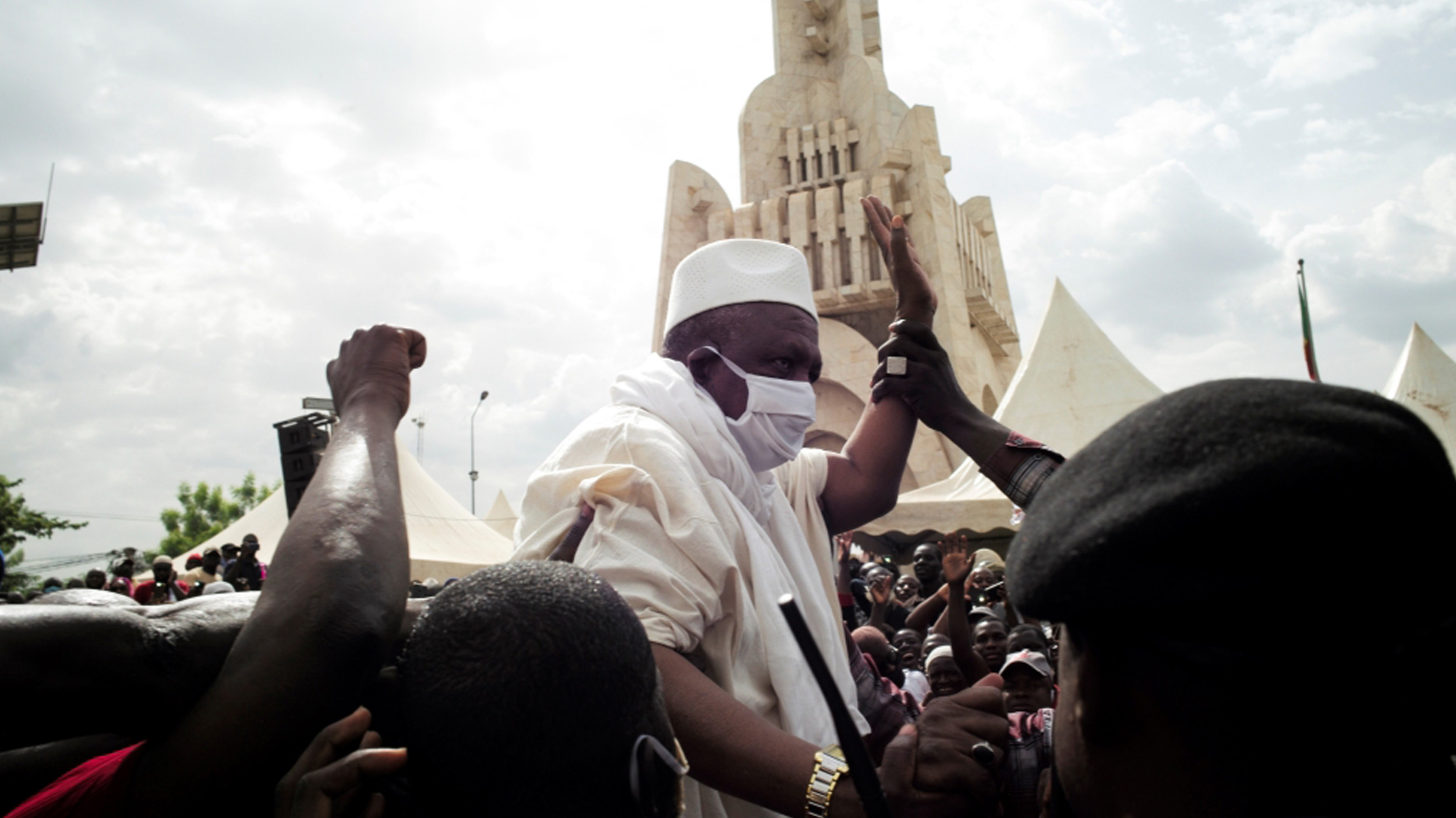
Malian President Ibrahim Boubacar Keïta is currently facing a mass movement demanding he step down. Decrying rampant corruption, election rigging, a collapsing economy and rising unemployment, and a lack of security and ethnic conflict, the movement sees the president’s ouster as the first step toward a fourth republic and a democratic order.
Although the roots of Mali’s political crisis run deep, public anger erupted into widespread protests in recent weeks after the abduction of opposition leader Soumaila Cisse. A diverse movement, the protests have brought together Salafis and Sufis, secularists and civil society, and numerous politicians and former state officials. At the forefront is Mahmoud Dicko, a charismatic imam and former ally of Keïta who enjoys broad public support and has brought critical momentum to the protests. While the opposition movement’s diversity has boosted its popularity and legitimised it, it could prove to be a weakness the longer the protests persist. All factions believe the president must go, but there is no agreement on what comes next and they do not all share the same goals. The movement also lacks international support, including from France, a key ally of Keïta with a major interest in Mali, and other influential regional actors. The international community is also concerned about Islamist control of the movement, despite assurances from Dicko.
Keïta has lost various allies in recent years, most significantly Dicko himself, and the security situation in the Azawad region in the north has eroded his legitimacy, as his pledge to bring peace, development and security goes unfulfilled. He also enjoys less control over the judiciary and other state institutions. Nevertheless, the international community’s rejection of non-constitutional solutions to the crisis could work in the president’s favour, helping to secure him an honourable exit that protects him and those close to him. The president may also be betting that it is only a matter of time before the popular movement splinters under weight of its differences and competing interests.
In assessing possible outcomes of the crisis, the role of international actors must be considered, the most important of these being the Economic Community of West African States (ECOWAS), which is legally empowered to intervene politically and militarily to prevent violence and has an interest in keeping the peace, and France, which is a key player in Mali’s political and security affairs, with troops on the ground. It will doubtlessly act to protect its own interests and prevent a total transfer of authority to the opposition. Given the fragile security situation in the country and the possibility of a slide toward open conflict, France will play a crucial role in any resolution.
In light of this, there are two possible scenarios. Firstly, President Keïta could be compelled to step aside, either by the force of the popular movement or due to intervention from the military, particularly if he orders the military to crack down on the movement. While France may back military intervention given its mistrust of opposition leaders, it is unlikely to succeed given ECOWAS and the African Union’s firm stance against any regime that comes to power through a coup.
Secondly, and more likely, an agreement may be reached between the government and the popular movement under international and regional aegis. This agreement could take different forms—Keïta could step down entirely or have his powers radically circumscribed under a new national unity, transitional government led by the opposition or a consensus figure. The transition period would culminate in new parliamentary and presidential elections. In this scenario, he would be given a safe exit, violence would be avoided, and much of the opposition’s demands would be met. It would also be welcomed by international and regional parties with a long-standing stake in Mali’s stability.
*This is a summary of a policy brief originally written in Arabic, available here: https://studies.aljazeera.net/ar/article/4735.